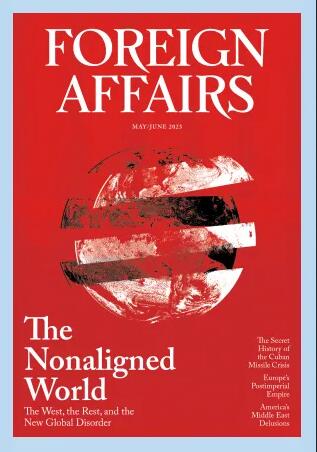自然资源在20世纪至21世纪初国际关系中的作用
IF 6.3
2区 社会学
Q1 INTERNATIONAL RELATIONS
引用次数: 1
摘要
获得自然资源一直是国际关系中最重要的方面之一,国际关系在历史上是作为不同国家之间相互联系的系统而发展起来的。然而,世界上存在着自然资源稀缺的问题,因此,有必要了解市场如何影响国家政策,以及国家如何干预和调节自然资源和能源市场的平衡,这是研究的相关性。本研究的目的是确定自然资源对20世纪至21世纪初国际关系发展的影响。为达到这一目的,本研究采用了一般科学方法和特殊科学方法:历史方法、同步方法和历时方法、逻辑方法、分析方法和综合方法、概括方法和定量比较方法、科学抽象方法和比较分析方法。这项研究确定,美利坚合众国、南美洲和中东拥有大量的石油、天然气、煤炭和贵金属储备。此外,如上所述,20世纪末,能源安全问题越来越多地用于确定国际能源政策,21世纪初,能源成为地缘政治的重要方面之一和地缘政治竞争的工具。通过开发自然资源而实现的经济利益的巩固,正成为各国为争夺全球资源市场而发生冲突的基础。可以确定的是,美利坚合众国在中东的政策是基于控制自然资源的企图,在南美洲的政策是基于支持其国家利益。该研究的现实意义在于,它可以为深入理解20世纪至21世纪初的地缘政治力量平衡,探索国际关系中的关键问题本文章由计算机程序翻译,如有差异,请以英文原文为准。
The role of natural resources in international relations in the 20th – early 21st century
The availability of natural resources has always been one of the most important aspects of international relations, which have historically developed as a system of interconnections between different countries. However, there is a problem of natural resource scarcity in the world, thus, it is necessary to understand how markets influence national policies and how states can intervene and regulate the balance of natural resources and energy markets, which is the relevance of the study. The purpose of the study is to determine the impact of natural resources on the development of international relations in the 20th – early 21st centuries. To achieve this purpose, the study uses general scientific and special methods: historical, synchronous and diachronic, logical, analysis and synthesis, generalisation and quantitative comparison, scientific abstraction, and comparative analysis. The study established that the United States of America, South America and the Middle East had significant reserves of oil, natural gas, coal and precious metals. In addition, as noted, at the end of the 20th century, the issue of energy security was increasingly used to define international energy policy, and at the beginning of the 21st century, energy became one of the important aspects of geopolitics and an instrument of geopolitical competition. The consolidation of economic interests realised through the exploitation of natural resources is becoming the foundation for conflicts between different countries seeking to dominate the global resource market. It is established that the policy of the United States of America in the Middle East was based on an attempt to control natural resources, and in South America - on supporting its national interests. The practical significance of the study allows exploring key issues in international relations for an in-depth understanding of the balance of geopolitical forces in the 20th – early 21st centuries
求助全文
通过发布文献求助,成功后即可免费获取论文全文。
去求助
来源期刊

Foreign Affairs
INTERNATIONAL RELATIONS-
CiteScore
4.80
自引率
0.00%
发文量
2
期刊介绍:
Founded in 1922, Foreign Affairs is a prominent American magazine that focuses on international relations and U.S. foreign policy. It is published by the Council on Foreign Relations, an esteemed nonpartisan think tank and membership organization dedicated to analyzing U.S. foreign policy and global affairs. While the print magazine is released every two months, the website offers daily articles and publishes anthologies every other month.
 求助内容:
求助内容: 应助结果提醒方式:
应助结果提醒方式:


